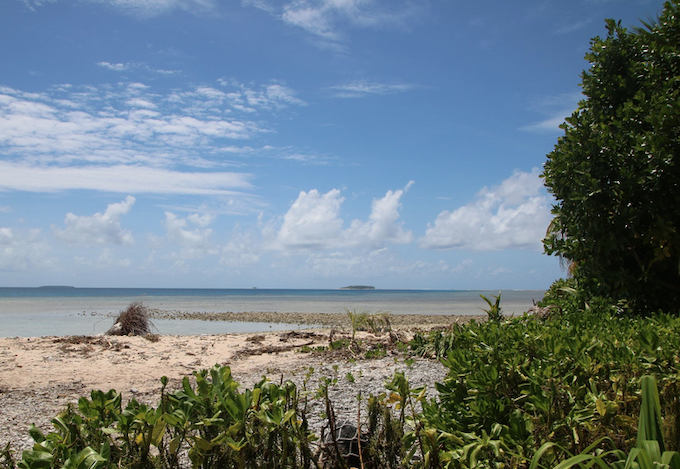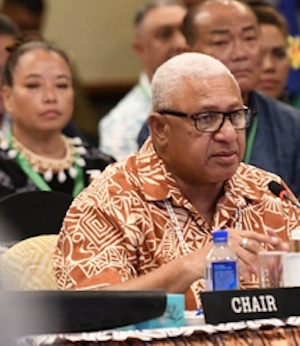
By Geraldine Panapasa in Suva
Climate change remains the single greatest existential threat facing the Blue Pacific, as leaders concluded the biggest diplomatic regional meeting in Suva last week with a plea for the world to take urgent action to limit global warming to 1.5 degrees.
While renewed commitments by Australia to reduce its carbon footprint by 43 percent come 2030 and a legislated net zero emission by 2050 were welcomed initiatives, Pacific leaders reiterated calls for rapid, deep and sustained reductions in greenhouse gas emissions, adding the region was facing a climate emergency that threatened the livelihoods, security and wellbeing of its people and ecosystems, backed by the latest science and the daily lived realities in Pacific communities.
PIF chairman and Fiji Prime Minister Voreqe Bainimarama said the need was for “more ambitious climate commitments” — actions that would require the world to align its efforts to achieving the Paris Agreement’s 1.5-degree temperature threshold.

“We simply cannot settle for anything less than the survival of every Pacific Island country –– and that requires that all high emitting economies implement science-based plans to decisively reduce emissions in line with the Paris Agreement’s 1.5-degree temperature threshold,” he told journalists at the PIF Secretariat.
“That requires that we halve global emissions by 2030 and achieve net-zero emissions by no later than 2050. Most urgently, it requires that we end our fossil fuel addiction, including coal,” he said.
“That is our ask of Australia. That is our ask of New Zealand, the USA, India, the European Union, China and every other high-emitting country.
“It is also what Fiji asks of ourselves, though our emissions are negligible.”
Crisis felt in Fiji, Pacific
Bainimarama said the world faced a global energy crisis that was felt in the Pacific and Fiji.
While he understood the political realities that existed, planetary realities must take precedence.
“It will take courage and surely extract some political capital. But if Pacific Island countries can respond to and rebuild after some of the worst storms to ever make landfall in history, advanced economies can surely make the transition to renewables.
“The benefits will be remarkable. Our region has the potential to become a clean energy superpower if we summon the will to make it happen. That path is no doubt the surest way to an open, resilient, independent, and prosperous Blue Pacific.”
Pacific Islands Forum Secretary-General Henry Puna told Wansolwara ahead of PIF51 that issues such as climate change, oceans, economic development, technology and connectivity as well as people-centered development were key priorities on the talanoa agenda for leaders from PIF’s 18-member countries, including Australia and New Zealand.
These priorities and the way forward to achieving it are incorporated in the 2050 Strategy for the Blue Pacific Continent, a collective ambitious long-term plan to address global and regional geopolitical and development challenges in light of existing and emerging vulnerabilities and constraints.
Cook Islands is expected to host the next PIF Leaders and related meetings in 2023, the Kingdom of Tonga in 2024 and Solomon Islands in 2025.
Geraldine Panapasa is editor-in-chief of the University of the South Pacific journalism programme newspaper and website Wansolwara. The USP team is a partner of Asia Pacific Report.












































